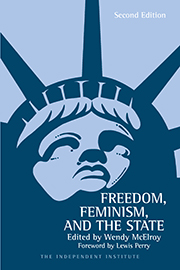Article I of the U.S. Constitution addresses the legislative powers that are vested in—held exclusively by—the Congress. One of these powers is the right to “grant Letters of Marque and Reprisal” (Section 8, paragraph 11). Further, Section 10, paragraph 1, of this Article reads:
No State shall enter into any Treaty, Alliance, or Confederation; grant Letters of Marque and Reprisal; coin Money; emit Bills of Credit; make any Thing but gold and silver Coina Tender in Payment of Debts; pass any Bill of Attainder, ex post facto Law, or Law impairing the Obligation of Contracts, or grant any Title of Nobility.
Paragraph 1 is an example of what many consider to be antiquated language in the Constitution, particularly with reference to the terms “Letters of Marque and Reprisal” and “Bill of Attainder.” Yet many terms considered to be antiquated not only have relevance to our modern day, but they also offer a window into the attitudes and historical events that created the United States. Only by understanding their context is it possible to understand the issues to which the Constitution speaks—then, and now.
Letters of Marque
A letter of marque—or letter of reprisal—is the means by which a government authorizes a civilian to arm a private ship in order to attack and plunder the merchant ships of an enemy nation during war. This is the meaning the term had acquired by the eighteenth century. In earlier use, it referred to the means by which a government righted a private wrong against one of its citizens. For example, if an English trader had his goods stolen in Holland and could not receive satisfaction through the Dutch legal system, the English government might grant him a letter of marque. He was then authorized to seize any Dutch ship to regain the value of the goods stolen from him. By 1700, however, the letter of marque had become an instrument of state by which government could expand its naval power during war.
Private parties who met certain requirements, such as the posting of a security bond, could arm what was called a “private ship of war” and legally plunder enemy merchant ships. Such authorized parties were called privateers by their own government and pirates by the enemy. After being adjudged as “lawful prize” by a court, the seized goods became the property of the privateer. This was his payment. Thus, the government was able to disrupt the commerce of an enemy nation without spending money.
Letters of marque assumed importance in American history as a response to the Prohibitory Act passed by Great Britain in 1775. By this Act, the rebellious colonies were stripped of protection by the English crown. Trade between the colonies and British merchants was forbidden; the seizure and plunder of American ships was encouraged. In turn, the Continental Congress issued letters of marque and reprisal that empowered colonial privateers to loot British merchant ships.
The “Instructions to the captains and commanders of private armed vessels which shall have commissions of letters of marque and reprisal,” issued by Congress on May 2, 1780, offer a sense of the restrictions placed on privateers. The primary restriction limited attacks to vessels owned by traders of the enemy nation. The private ships of war were “to pay a sacred regard to the rights of neutral powers.” The purpose of this restriction was partly to conform with international law and partly to avoid turning neutral nations into hostile ones. The privateer was ordered to “bring such ships . . . to some convenient port" where an Admiralty court could judge whether the plunder was lawful. Privateers were not to “kill or maim, or, by torture or otherwise, cruelly, inhumanly, and contrary to common practice of civilized nations in war, treat any person or persons surprised in the ship.”
On April 16, 1856, most of the major maritime powers signed an international agreement called the Declaration Respecting Maritime Law—more popularly known as the Declaration of Paris—which abolished privateering. The United States declined to sign on the grounds that its navy was so small that letters of marque were required to bolster it during war. Without the letters the United States would be at a disadvantage versus European nations with large standing navies.
During the Spanish-American War (1898), Spain and America—neither of which was a party to the Declaration of Paris—agreed to eschew privateering. It was not until the Hague Conferences at the dawn of the twentieth century, however, that the United States officially renounced the use of letters of marque and reprisal. Thus, the term is antiquated in that it no longer applies to an activity in practice.
Bill of Attainder
The term “Bill of Attainder” occurs not only in Section 10 of Article I (prohibiting the States), but also in Section 9, paragraph 3, “No Bill of Attainder or ex post facto Law shall be passed” (prohibiting the Congress).
In his book The Supreme Court: How It Was, How It Is, Chief Justice William H. Rehnquist offers this definition: “A bill of attainder was a legislative act that singled out one or more persons and imposed punishment on them, without benefit of trial” (p. 166). The prohibition against bills of attainder was to prevent anyone from being tried by the legislature rather than by the judiciary. Rehnquist explains that the phrase refers to a “precise legal term which had a meaning under English law at the time the Constitution was adopted.”
In English common law, when a person was condemned to death or deemed unfit to live (for example, condemned as an outlaw), he was labeled “attaint”—tainted or corrupted in his blood—and his land was forfeited to the crown. Because the blood was corrupted, a man whose “outlawry” was sufficiently egregious could neither inherit land nor transmit it to his children. Parliament began to use bills of attainder in 1459 to exercise judicial authority. The method became infamous during the reign of the Tudor monarchs—especially Henry VIII—who blatantly used it to punish political dissenters, many of whom could be found legally guilty in no other manner.
Because bills of attainder had been used in colonial America, the framers of the Constitution were well aware of this abuse. Thus, Article III, Section 3, reads, “The Congress shall have power to declare the punishment of treason, but no attainder of treason shall work corruption of blood, or forfeiture except during the life of the person attainted.”
Even the exigencies of the Civil War did not entirely remove the American suspicion of bills of attainder. On July 17, 1862, a wartime Congress passed the Confiscation Act directed at citizens of the Confederacy. The intention of the Act was to “suppress insurrection, to punish treason and rebellion, to seize and confiscate the property of rebels.” But the term of confiscation was specified to be for the life span of the offender, with his children carrying no taint of blood and thus able to inherit.
Although “bill of attainder” may seem to be as antiquated a term as “letters of marque,” some political commentators believe that recent asset-forfeiture laws constitute bills of attainder under another name. These laws allow authorities to seize the property of people who have neither been tried nor convicted of crimes. For example, by power of legislation alone, authorities may confiscate homes, boats, and cars in which drugs are found.
Organizations such as the Institute for Justice believe that such seizure without trial is a violation of constitutional and civil rights. The Bill of Attainder Project (www.isc-durant.com/tom/billofattainder/) is attempting to have the phrase defined in law as “A law or legal device which outlaws people, suspends their civil rights, confiscates their property, punishes or puts people to death without a trial.”
The debate over asset forfeiture raises an intriguing point. Although the specific form of an abuse mentioned in the Constitution may no longer exist, the abuse may have merely assumed another shape.
In sculpting the Constitution—and especially in using certain terms repeatedly—the framers were addressing real political abuses they had witnessed firsthand. Those specific forms of the abuse may no longer exist, but the appetite of some human beings for power and plunder seems to remain unchanged through time. It is necessary to look beyond the quaintness of any specific term and ask, what current legal practice corresponds, in its essence, with one that is prohibited by the Constitution?









